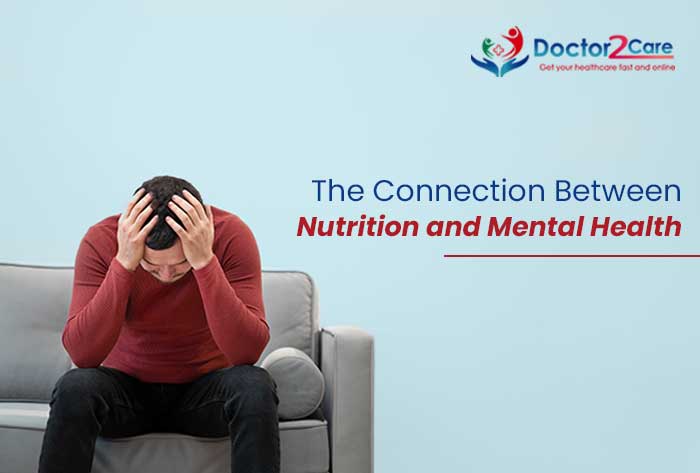The Connection Between Nutrition and Mental Health

From a very young age we are made to think that eating well helps us to look and feel physically strong. It is not often talked about that good nutrition significantly affects our mental health as well. A well balanced time and timely intake of food can improve the level of our concentration, make us feel more alert and help the brain function better.
Even though mental health is a crucial aspect of the overall wellbeing, it is affected by various factors like genetics, environment, lifestyle and past traumas. Proper diet and timely nutritious food cannot treat mental health issues but it can keep one healthy and foster good thoughts in mind. You can have a clear picture by taking online doctor consultation in India.
In this blog, we will explore the connection between nutrition and mental health, including the role of certain foods in supporting mental health.
Nutrition and Mental Health
The food we take has a direct connection and impact on our physical and mental health. A balanced diet rich in fruits, vegetables, lean protein, and whole grains provides our body with essential nutrients and minerals that support our mental health. On the other hand, a diet that is high in processed and fast foods can negatively affect our mental health.
Studies have shown that there is a significant connection between what we eat and our mental health. It is found that individuals who consumed a diet high in fruits, vegetables, and whole grains were less likely to experience depression and anxiety.

The Role of Certain Foods in Supporting Mental Health
There are several specific foods that have been shown to support mental health and well-being. Let's take a closer look at some of them.
- Fatty Fish
Fatty fish such as salmon, tuna, and mackerel are excellent sources of omega-3 and fatty acids. Omega-3s are essential nutrients that play a vital role in brain function and development. Studies have shown that omega-3s can help reduce symptoms of depression, anxiety, and bipolar disorder.
- Whole Grains
Whole grains, such as brown rice, quinoa, and oats, are high in fibre and essential vitamins and minerals. They provide a slow and steady release of glucose into the bloodstream, which helps to stabilise mood and energy levels.
- Leafy Greens
Leafy and green vegetables like the spinach, kale, and collard greens are rich in folate and Vitamin-B that plays a critical role in brain function. Low levels of folate have been linked to depression and other mental health disorders.
- Fermented Foods
Fermented foods such as kefir, kimchi, and sauerkraut are rich in probiotics, beneficial bacteria that support gut health. Emerging research has linked gut health to mental health, with evidence suggesting that a healthy gut microbiome may help reduce symptoms of depression and anxiety.

Conclusion
While it's hard to see how healthy diets impact mental illness since the brain and microbiome are complex, a bad diet is linked to poor mental health, and weaker immunity. Balanced diets can prevent long-term health issues, and doctors or dieticians can help advise on what to eat. To see a doctor you can go for online doctor consultation in India.